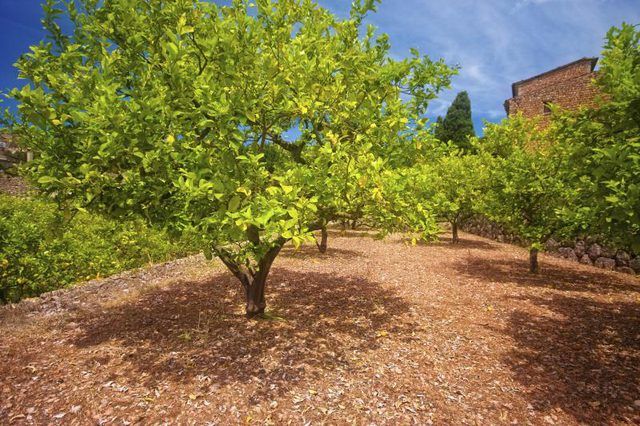Bulbs
Flower Basics
Flower Beds & Specialty Gardens
Flower Garden
Garden Furniture
Garden Gnomes
Garden Seeds
Garden Sheds
Garden Statues
Garden Tools & Supplies
Gardening Basics
Green & Organic
Groundcovers & Vines
Growing Annuals
Growing Basil
Growing Beans
Growing Berries
Growing Blueberries
Growing Cactus
Growing Corn
Growing Cotton
Growing Edibles
Growing Flowers
Growing Garlic
Growing Grapes
Growing Grass
Growing Herbs
Growing Jasmine
Growing Mint
Growing Mushrooms
Orchids
Growing Peanuts
Growing Perennials
Growing Plants
Growing Rosemary
Growing Roses
Growing Strawberries
Growing Sunflowers
Growing Thyme
Growing Tomatoes
Growing Tulips
Growing Vegetables
Herb Basics
Herb Garden
Indoor Growing
Landscaping Basics
Landscaping Patios
Landscaping Plants
Landscaping Shrubs
Landscaping Trees
Landscaping Walks & Pathways
Lawn Basics
Lawn Maintenance
Lawn Mowers
Lawn Ornaments
Lawn Planting
Lawn Tools
Outdoor Growing
Overall Landscape Planning
Pests, Weeds & Problems
Plant Basics
Rock Garden
Rose Garden
Shrubs
Soil
Specialty Gardens
Trees
Vegetable Garden
Yard Maintenance
Soil for Lemon Trees
Soil for Lemon Trees. Lemons (Citrus limon) will grow in a wide variety of soils as long as they drain well. There are a few exceptions, though, where soil may have to be amended. If you grow lemons in containers, you’ll need a soil-less growing mix. Lemons will grow in U.S. Department of Agriculture plant hardiness zones 9a through 10b.

Lemons (Citrus limon) will grow in a wide variety of soils as long as they drain well. There are a few exceptions, though, where soil may have to be amended. If you grow lemons in containers, youíll need a soil-less growing mix. Lemons will grow in U.S. Department of Agriculture plant hardiness zones 9a through 10b.
Soil Lemons Like
Lemons grow mostly on sand in Florida, while in California they do well on a mixture of silt, clay and loam. Avoid planting lemon trees in salty soil, heavy clay soil or other soils that drain poorly.
Lemons will grow on black soil containing large amount of humus if it is not situated over chalky soil or limestone that prevents it from draining. An underlying layer of soil particles cemented together by lime, called caliche, also blocks soil from draining.
Soil pH
Lemons like a soil pH between 5.5 and 6.5 on a scale of 14. Anything below 7 is acidic. Anything above 7 is alkaline. You can buy a kit to measure soil pH from most garden supply centers.
To lower the pH 1/2 to 1 point, making soil more acidic, work 3 pounds of iron sulfate, 3 pounds of aluminum sulfate or 1/2 pound of finely grained sulfur into the top 6 inches of 100 square feet of soil. Sulfur works slowly but lasts for years. Aluminum sulfate acts quickly, but toxic aluminum may build up in the soil.
To raise pH 1/2 to 1 point, making soil more alkaline, add 5 pounds of ground limestone to the top 6 inches of every 100 square feet of light to medium soil.
In heavy soils rich with organic matter, increase these amendments by one-third.
Amending Soil
When you plant a lemon tree, fill the hole with the same soil that you removed when you dug the hole. Adding potting soil, peat, or compost into the hole of native soil is not necessary or desirable if you have rich soil. It increases the chance of root rot. The amendment exceptions are if your soil is very sandy or composed of heavy clay.
Rototill 1 to 2 inches of compost into 25 square feet of very sandy soil. If the soil is heavy clay, create a raised bed or mound before adding the compost. Plant the tree into the center of this amended soil.
In desert areas, a thin layer of sandy soil sits on layers of heavy clay. If thatís your problem, dig a hole 6 feet wide and 6 feet deep, and break up the underlying layers of clay.
Do not add fertilizer to the soil when you plant a lemon tree.
Container Soil
The limited amount of space in a container means the growing mix has to drain well to prevent root diseases of dwarf lemon trees. Garden soil is too dense. Garden supply centers sell soil-less potting mixes for growing lemons in containers, but you can make your own mix by combining 1 part fine sand with 4 parts of ground fir or pine bark.